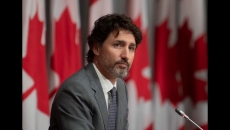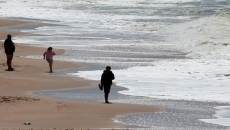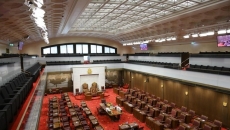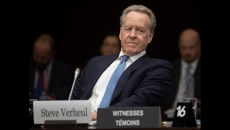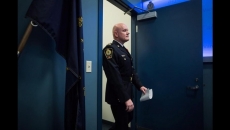The government has quietly relaxed a requirement to fingerprint prospective new federal hires as part of security screening, a move prompted by the need for physical distancing during the COVID-19 pandemic.
The temporary change to the federal standard on security screening allows departments and agencies subject to the Policy on Government Security to grant conditional security statuses and clearances.
The Immigration and Refugee Board and the Canadian Space Agency told The Canadian Press they had adopted the new flexible measures.
The government must ensure it can effectively respond to public needs during COVID-19 by hiring badly needed workers, the Treasury Board Secretariat said in response to questions about the change.
"This has required urgently increasing the workforce necessary to implement the government's emergency measures and to provide support where urgently needed, like health-care workers in Indigenous and northern communities."
The secretariat said that given the physical distancing practices recommended by the Public Health Agency of Canada, it is "not always possible to obtain fingerprints," a common step in carrying out a criminal record check during screening.
The decision to grant a conditional security screening clearance under the temporary change in practice is the responsibility of the deputy head within each department or agency, based on individual circumstances.
Agencies continue to "diligently assess" candidates using security screening measures in a manner that does not present a public health risk, the secretariat said.
"This includes, for example, verifying a candidate's identity and background, information, education and professional credentials and performing a credit check.
"This may include conducting name-based checks for law enforcement inquiries as an alternative to using digital fingerprints or extending the validity of existing screening levels that are due for revalidation during this period."
All candidates for employment with the government are also required to self-declare the existence of a criminal record on a security screening application form.
"We are encouraging departments and agencies to only use this conditional screening practice for low-risk positions," the secretariat said.
Even with the variation, access to classified information remains restricted only to employees who have been granted the appropriate security screening status, it added.
"Under these circumstances, any letters of offer would be conditional on the security screening ultimately being successfully completed and the employee being confirmed at the appropriate security screening level for the position."
Between mid-March and May, 13 new hires at the Canadian Space Agency received conditional security clearances with no fingerprints, said Andrea Matte, a spokeswoman for the agency. "Additional screening activities and security measures were put in place."
Since May, with new sanitation measures available, the space agency has been able to take fingerprints for all but two of these new hires and they are now fully cleared, Matte said.
The direction from Treasury Board indicated the measure was meant for agencies that grant employees a level known as "reliability status," whereas the RCMP uses the higher level of "enhanced reliability status" given the nature of its work and security levels within the organization, said Catherine Fortin, a spokeswoman for the national police force.
"The RCMP did not provide the authority to implement this measure, and as a result there is no indication it was ever used in our organization."
During the pandemic, hiring has been done on a priority basis and each of the regions had its own processes for use of personal protective equipment and cleaning protocols, Fortin said. "Any individuals being hired at this time would have to be considered critical."
Similarly, the Correctional Service of Canada said it had not eased screening practices due to COVID-19, adding the prison service "must ensure that individuals with access to government information and assets are reliable and trustworthy."
The Immigration and Refugee Board said it forgoes fingerprinting for about five to 10 candidates a month needing reliability status, but continues to apply other security protocols.
"All employees subject to this temporary measure will be subject to fingerprint checks and regular screening procedures once normal screening processes resume," the board said.
Because the total number of conditional clearances granted using the variation will depend on decisions made within each department, an estimate of the number of people affected is not available, the Treasury Board Secretariat said.

